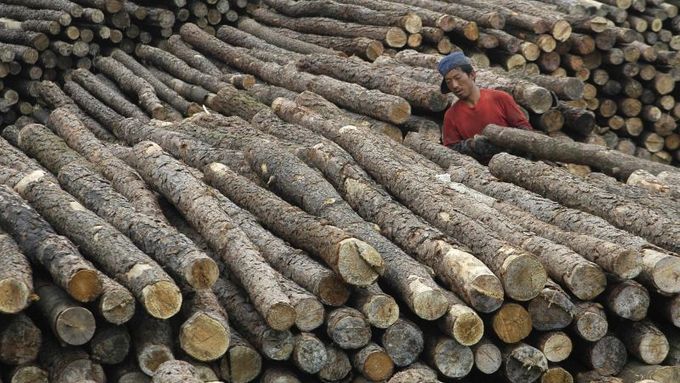Prague - Each year, the EU member states, including the Czech Republic, import millions of trees illegally felled in Asia, Africa and Latin America.
International environmental activists' organization Greenpeace has launched a new campaign aimed at European lawmakers, urging them to adopt strict regulations on wood trade. Brussels is to discuss the issue as early as next month.
"We want to make sure that European lawmakers, including the president of the European Commission José Barroso, will not forget to make this important step during the summer," spokeswoman of the Czech branch of Greenpeace Lenka Boráková said.
Illegal wood imports
The environmentalists have prepared a TV ad called Forest Love that is to draw attention to the problem of illegal wood imports from tropical zones.
Greenpeace activists see deforestation as one of the biggest environmental problems at the moment..
"Ninety percent of all animal and plant species live in original rainforests," says Boráková, adding that almost eighty percent of rainforests have been destroyed.
ČR to be blamed too
Wood that is produced in illegal deforestation is exported to the Czech Republic as well. "Only in years 1999-2003 the import of tropical wood to the Czech Republic tripled and is still growing," assured Boráková.

According to the older information of the World Wildlife Fund (WWF), the Czech Republic is Europe's third most unsuccessful (or unwilling) country in terms of fighting illegal wood imports. Only Poland and Ireland have worse record.
Forest in the toilet
On the contrary, Britain, the Netherlands and Denmark have the best attitude, according to the WWF.
"The EU is the world's main consumer of illegally produced wood, but the governments fail to introduce legal measure that would require proving the origin of the trees and wood products," informed the WWF.
According to the organization, European producers of toilet paper, napkins and tissues significantly contribute to the trend. It is estimated that every day some 270 thousand of healthy trees are flushed down the toilet or thrown into the garbage in that way.
In most cases, producers do not care to check the origin of the imported material, no matter how suspicious it may be, the environmentalists claim.
